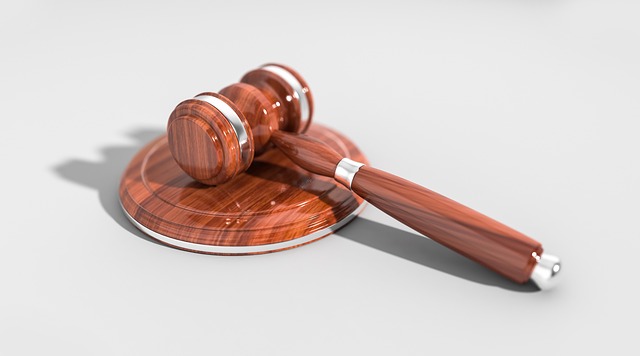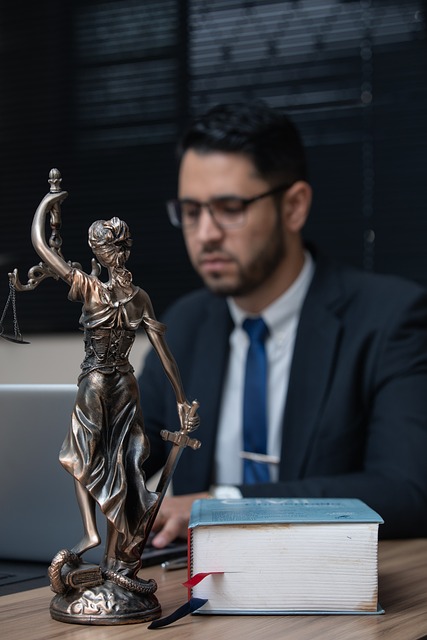Whistleblower Protection Lawsuits are crucial for exposing illegal or unethical activities, offering safe harbor against retaliation. To sue for false advertising, individuals must gather substantial evidence and consult experts, then follow key steps: identify a violation, gather evidence, file a lawsuit, engage in pre-trial proceedings, and prove a clear pattern of retaliation. Success stories demonstrate the power of these lawsuits to expose corruption, improve governance, provide compensation, set precedents, deter future wrongdoings, and promote accountability. Understanding these steps can empower individuals to bring positive change through effective legal action against false advertising practices.
Whistleblower protection lawsuits play a crucial role in holding corporations accountable for false advertising, ensuring consumers and employees are protected. These legal actions empower individuals to expose deceptive business practices without fear of retaliation. Understanding your rights and eligibility is the first step. This guide delves into the process, from gathering evidence and consulting experts to navigating the legal system and potential benefits. By following these steps to sue for false advertising, whistleblowers can become agents of change, revolutionizing corporate behavior.
- Understanding Whistleblower Protection Lawsuits: Rights and Protections
- Who Qualifies as a Whistleblower? Defining Eligibility Criteria
- Steps to Take Before Filing a Lawsuit: Gathering Evidence and Consulting Experts
- Navigating the Legal Process: From Filing to Trial
- Success Stories and Benefits: The Impact of Whistleblower Protection Lawsuits
Understanding Whistleblower Protection Lawsuits: Rights and Protections

Whistleblower Protection Lawsuits are a crucial mechanism for individuals who expose illegal or unethical activities within organizations. When employees speak up about fraudulent practices, they face significant risks, including potential retaliation from employers. Understanding one’s rights under whistleblower protection laws is essential in ensuring these brave individuals are not deterred from doing the right thing.
These legal protections provide a safe harbor for whistleblowers by preventing them from facing adverse consequences such as firing, demotion, or harassment. In many jurisdictions, there are specific steps to sue for false advertising, particularly when an employee uncovers and reports fraudulent activities that mislead consumers or investors. By knowing their rights, whistleblowers can navigate the legal process with confidence, aiming to achieve extraordinary results in their pursuit of justice while avoiding indictment for speaking out against white-collar crimes.
Who Qualifies as a Whistleblower? Defining Eligibility Criteria

In the context of whistleblower protection lawsuits, understanding who qualifies as a whistleblower is crucial. Typically, individuals who expose illegal or unethical activities within their organizations or industries are considered whistleblowers. These can range from employees and contractors to external consultants or even citizens who uncover fraudulent practices. Eligibility criteria often include demonstrating that the individual had reasonable grounds to believe that their organization was engaging in unlawful conduct, and they acted with a genuine intention to bring the matter to light.
Steps to Sue for False Advertising involve several key considerations. Whistleblowers must gather substantial evidence supporting their claims, ensuring it meets legal standards. This may include documents, communications, and testimonies from colleagues or experts. Once prepared, they can file a lawsuit in civil court, aiming to hold the offending party accountable. The process often involves presenting their case before a judge and, in some cases, securing jury trials, which can lead to significant financial remedies and organizational changes, fostering a culture of accountability within the philanthropic and political communities as well as among corporate and individual clients.
Steps to Take Before Filing a Lawsuit: Gathering Evidence and Consulting Experts

Before filing a whistleblower protection lawsuit for false advertising, it’s crucial to take several steps to ensure your case is solid. The first step involves gathering comprehensive evidence—this includes any documents or records that support your claim of false or misleading advertising practices. This might include marketing materials, sales data, and communication with the relevant authorities.
Additionally, consulting experts in fields like marketing, branding, and legal expertise specialized in whistleblower cases can provide invaluable insights. These professionals can help you interpret the evidence, understand industry standards, and navigate the complexities of the law. Their guidance is essential to strengthen your case and maximize your chances of achieving a complete dismissal of all charges against you, whether you’re a corporate or individual client.
Navigating the Legal Process: From Filing to Trial

Navigating the legal process for whistleblower protection lawsuits involves several key steps. The first step is to identify a violation of federal or state whistleblower laws, which protect individuals who expose illegal activities within their organizations. Once this determination is made, the next crucial step is to gather evidence and document the facts supporting the claim. This includes any internal reports, communications, or records that demonstrate the wrongdoing.
After preparing the case, the plaintiff files a lawsuit against the alleged violator, typically seeking damages for retaliation, as well as injunctive relief to prevent further harm. The case then moves through pre-trial proceedings, where both parties exchange information and prepare their arguments. This is followed by a potential settlement negotiation or, if neither side agrees to resolve the dispute, the matter progresses to a jury trial. Winning challenging defense verdicts in these cases often hinges on demonstrating a clear pattern of retaliation and the validity of the whistleblower’s claims, resonating with both the legal system and the philanthropic and political communities.
Success Stories and Benefits: The Impact of Whistleblower Protection Lawsuits

Whistleblower Protection Lawsuits have proven to be powerful tools for individuals who come forward with valuable information about illegal activities within their organizations. Success stories abound, showcasing the positive impact these lawsuits have had on exposing corruption and fraud. For instance, former employees who report false advertising or other misconduct can bring significant changes, leading to improved corporate governance and accountability.
These legal actions not only provide financial compensation for the whistleblowers but also set precedents that deter future wrongdoings. Through successful whistleblower protection lawsuits, individuals have been able to win challenging defense verdicts, demonstrating the strength of their cause and the importance of standing up against false advertising practices. This has broader implications for general criminal defense, encouraging more people to come forward with crucial information while ensuring they are protected under the law.
Whistleblower protection lawsuits play a pivotal role in upholding integrity within organizations, ensuring that wrongdoings don’t go unnoticed or unchallenged. By understanding your rights and qualifications as a whistleblower, gathering robust evidence, and consulting legal experts, you can effectively navigate the legal process to protect against retaliation and seek justice. Remember, each step in the process, from initial disclosures to trial, is crucial in securing benefits that extend beyond personal compensation, such as fostering ethical business practices and preventing future false advertising.






